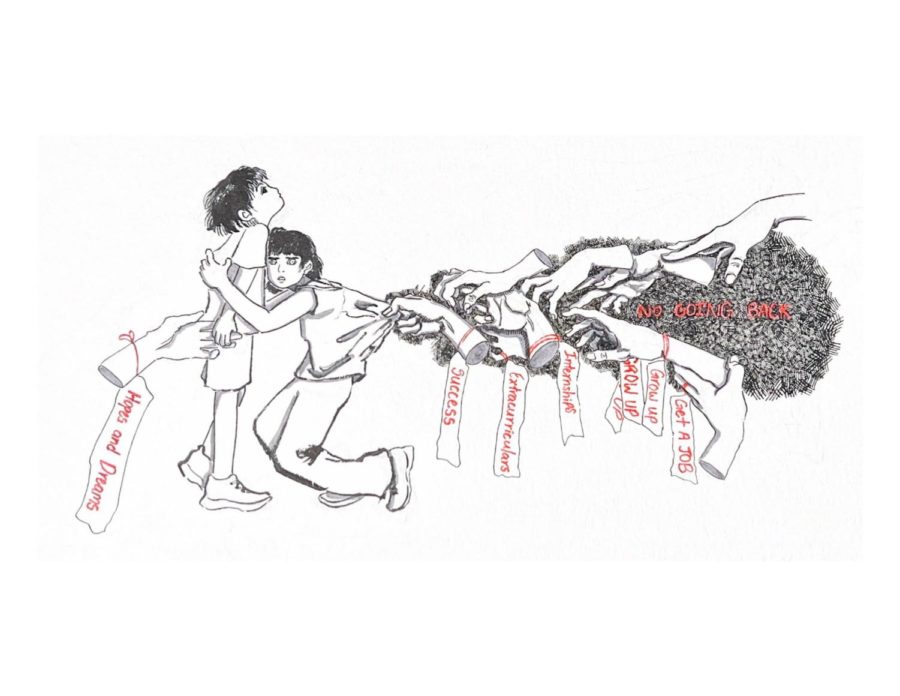Last Friday marked the beginning of Passover, and this year’s eight-day celebration once again overlapped with Easter Sunday. Passover is one of the most important holidays on the Jewish calendar, and Easter is considered to be the most important on the Christian one. On that Friday night, many of my Jewish friends observed the Passover Seder, even though I knew many of them were relatively secular and did not regularly engage with religion. The same was true for my friends who were raised Christian—many decided to attend Easter Mass even though, for some, it was the first time they attended church all year. Many celebrated the holidays with their families out of faith while some, even though there was no faith-based component, used the holiday as an excuse to spend a morning with family. Such aspects are often ignored when people talk about religion.
When people discuss religion, the term is often used synonymously with faith. To many, being religious means believing—in a higher power, higher authority, or whatever it may be. Some irreligious people point out the perceived ignorance associated with believing anything that is not scientifically verifiable. This critique, however, is problematic as it misses the larger context of religion as a social endeavor—ignoring the fact that subcultures within each religion are not identical. Situations like Rupert Murdoch’s tweet in the aftermath of the Charlie Hebdo attacks saying that all Muslims “must be held responsible” for “their growing jihadist cancer” highlight this problem. When people who are marginally or culturally affiliated with a religion are placed under the same umbrella used to judge the actions of others, often extremist members of the religion, gross overgeneralizations and mistaken beliefs arise. Just because an individual is raised Evangelical Christian does not mean he or she believes homosexuality is a sin. Just because an individual is raised Catholic does not mean he or she believes contraception is a sin. For many, the cultural aspects of their religion are more important than the faith-based teachings. However, societal conceptions of religion are usually based solely on the latter aspect. Religious identity is often erroneously equated with a set of views that an individual may not hold—and this is dangerous.
We live in a society that is ever more infatuated with identity—your societal status is becoming increasingly based on these general categories rather than on your actions, personal beliefs, or interactions with different aspects of the world. Adding religion to the long list of identifiable traits to judge only heightens the disconnect between individuals, which subsequently paralyzes certain communities. Muslims living in suburban Cleveland probably have more in common with Christians and Jews living in Ohio than they do with Muslims living in the Middle East. I had friends growing up who played baseball, football, and were in a band—a proverbial “All-American” upbringing. They were also Muslim. Yet in the media, those same individuals are often first identified by their religion, rather than by any other aspect of their identity. It is important to realize, especially before coming to any grand conclusions concerning a person’s identity, that faith is but one aspect among numerous others that define religion. Ultimately, religion is not merely defined by faith but rather can also be defined by a person’s upbringing.
Religion in its entirety is much more complex and nuanced than the actions of one radical group or the words in a holy text. The process of struggling with faith, and the fact that religion, even one aspect of it, can play a role in one’s upbringing are all invaluable aspects of the religious experience that today seem neglected by societal conceptions of the term. Humans have had various forms of religion since our earliest days, and often they involved not just a set of moral beliefs but cultural events that were centered on community and family. Often religious holidays are a way for families to reunite and celebrate. But antagonism toward faith overwrites the positive aspects of religion and, worse yet, lends itself to undue criticism of large groups of individuals that may not necessarily apply.
Lear Jiang is a fourth-year in the College majoring in political science.








